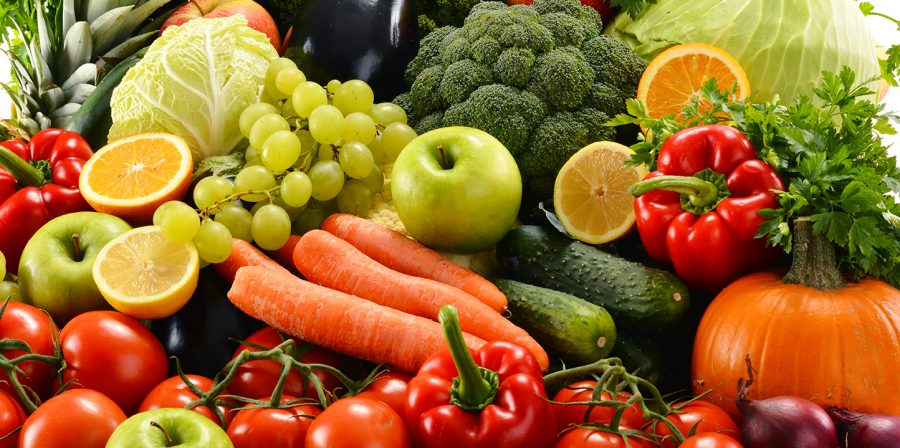
Juicing Recipes for Digestive Ailments
- Constipation
- Diarrhea
- Diverticular
- Heartburn
- Indigestion
- Inflammatory Bowel
- Irritable Bowel
- Peptic Ulcers
CONSTIPATION: Causes may include: Constipation Juicing Recipes PDF
- Antacid medicines containing calcium or aluminum
- Changes in your usual diet or activities dis-ease (Colon cancer, Anemia, or Diverticular)
- Eating a lot of dairy products.
- Eating disorders
- Irritable bowel syndrome
- Neurological conditions such as Parkinson’s disease or multiple sclerosis
- Lack of exercise
- Not enough water or fiber in your diet
- Overuse of laxatives (Over time, this weakens the bowel muscles)
- Pregnancy
- Problems with the nerves and muscles in the digestive system which result in excessive relaxation or tension of the bowel muscles
- Resisting the urge to have a bowel movement, which some people do because of hemorrhoids
- Some medications (especially strong pain drugs such as narcotics, antidepressants, or iron pills)
- Stress
- Under active thyroid
Diarrhea is the condition of having at least three loose or liquid bowel movements each day.[2] It often lasts for a few days and can result in dehydration due to fluid loss.[2] Signs of dehydration often begin with loss of the normal stretchiness of the skin and irritable behaviour.[a common type of gastrointestinal upset or infection. (Wikipedia) How to Stope Diarrhea: 5 Home Remedies for Fast Relief by Dr. Axe Referrals for more information on the Digestive System: The Highway of Life Your Digestive System
What is Diverticulosis and Diverticulitis? Diverticulosis is when small, bulging pouches form in the lining of your digestive system. If these pockets become plugged up with matter that is passing through the colon bacteria becomes trapped, inflamed and causes infection. This is called diverticulitis and can lead to bloating and severe pain in the abdomen (usually the left side). Although the cause is not certain, lack of fiber and poor blood flow. Suggested Nutrition Steps for a Flare Up:
- A low-residue diet allows the bowel time to rest and can include fresh juice, vegetable broth and plenty of fluids including water and herbal teas.
- A juice fast is a great way to allow the digestive systemto rest and reduce inflammation, while providing the body key nutrients it needs to heal. Depending on the inflammation and your doctor’s recommendations, a 3 or 5-day juice fast could be beneficial. It is suggested to drink juice in smaller quantities. For example, if you are unable to handle 4-6 juices (16-20 oz. per serving), instead, drink 10 juices smaller sized juices (10 oz. servings) throughout the day. Check with your doctor first if you elect to do a juice fast only.
- Include ginger root, turmeric, or mint in your juices, which can also provide an anti-inflammatory benefit to the bowel. L-glutamine has also been shown to be helpful to strengthen the digestive tract and this is a topic, which you can also discuss with your doctor.
- Soothing fluids: Include warm/hot water with lemon and fresh ginger to help reduce inflammation and nausea. Some herbal teas might also help reduce the pain and inflammation like chamomile and marshmallow root tea to help sooth the digestive tract while it repairs.
Inflammatory Bowel Dis-ease Juicing Recipes PDFInflammatory bowel causes inflammation of the large intestine (colon). There are different classes of ulcerative colitis depending on its location and severity. The two main types of IBD are ulcerative colitis and Crohn’s disease. Symptoms for both include severe diarrhea, pain, fatigue and weight loss. First, for IBD, you must minimize your intake of fruit juices. The very high sugar content may cause you gut problems. Carrot juice is also high in sugars and the same caveat should apply for carrots as applies for fruit: minimize quantity to two.
IBD should be not taken lightly because it can be life threatening if goes untreated.
Here is an excellent resource on the signs and treatment for Inflammatory Bowel Disease.
Intelligent Medicine – Natural treatment options for inflammatory bowel disease
Referrals for more information on the Digestive System:
The Highway to Life: Your Digestive Tract
Irritable Bowel Dis-ease Juicing Recipes PDF Once called “spastic colon,” irritable bowel syndrome, commonly known as IBS, is a common disorder that involves the entire digestive tract. Juicing soothes the intestines and helps your system to function at its best which is a major benefit when treating IBS. Adding aloe vera gel to your juices soothes the intestines and stomach. Incorporating about 1-2 ounces into your every day diet may prove to be beneficial as well. It is recommended to try to find juice made from the aloe vera inner leaf. Apples are rich in antioxidants and therefore people with IBS, apples are a staple and benefits both ends of the IBS spectrum. Apples should be raw and peeled. Removing the peel is necessary because the skin holds too much insoluble fiber. Apples are relatively high in dietary fiber. For someone dealing with constipation as a result of irritable bowel syndrome, or IBS, eating them can often prove beneficial. Dietary fiber can help soften stool, making it much easier to pass. However If your symptoms include a lot of gas and bloating then one may not enjoy the same results. Apples and other raw fruits can trigger or even worsen IBS symptoms from the increase in intestinal gas. If you are experiencing a high level of constipation adding fruits and vegetables high in fiber such as apples and cabbage can be very beneficial but be cautious as noted before if experiencing gas and bloating and more severe symptoms such as abdominal pain, cramping and diarrhea then a high fiber diet should be temporarily discontinued. If you are experiencing gas and bloating then a safe measure would be to temporarily eliminate your triggers from your diet. After gas and bloating symptoms subside start incorporating them back into your diet slowly, increasing your intake week by week. This method may help you find a good level of fiber intake that won’t exacerbate IBS symptoms. Referrals for more information on the Digestive System: The Highway to Life: Your Digestive Tract
Peptic Ulcers Juicing Recipes PDF A peptic ulcer is a sore in the lining of your stomach or your duodenum, the first part of your small intestine. A burning stomach pain is the most common symptom. Peptic ulcers happen when the acids that help you digest food damage the walls of the stomach or duodenum. Studies show approximately 85 percent of all peptic ulcers are caused by infection with a bacterium called Helicobacter pylori. The rest are due to drugs, especially non-steroidal anti-inflammatory (NSAIDs) medications, such as aspirin, ibuprofen and/or other pain relievers. For treatment and new studies on ulcers: Stomach Ulder Symptoms & Remedies that Work Apple Cider Vinegar for Petpic or Stomach Ulcer Stomach Ulcers: Do Natural Remedies Work?
Food For Thought Towards A Healthy Digestive System
Although we may all be created equal we are not created the same. We have different blood types, ailements and genetics just to name a few of our differences. So it makes since that our body’s needs are different too. What may be healthy for one may not necessarily be healthy for another.
The one common thing we do have that is important for everyone is our digestive system. The body cannot function properly with an unstable digestive system. Making this a top priority would be wise.
A healthy digestive system properly delivers nutrients to the body and properly eliminates toxins and waste. So make the necessary changes to your daily choices to promote a healthy digestive system, which is a key ingredient to a healthy lifestyle.
Your gut affects every single cell in your body. If you are suffering from symptoms such as lack of energy, indigestion, food allergies, inflammatory bowel, flatulence, weight gain, premature aging, mood swings to chronic disease then you could benefit by food combining and eating your way to a healthy gut.
Today’s modern diet filled with fast foods and processed foods leaves the gut exposed to many toxins.
Here are 4 steps to get your digestive system back on the right track:
Take prebiotics. Promote the growth of healthy microflora by taking prebiotics. One natural and highly beneficial prebiotic is apple cider vinegar, preferably organic. Prebiotics nourish our probiotics (the healthy microflora in your inner ecosystem).
Take a strong probiotic. Probiotics work to fill your gut with good bacteria. Natural probiotics foods include yogurt, sauerkraut, and kefir. But if you can’t eat those foods every day then your best option is to take a probiotic supplement every morning. Here is a good reference site regarding what to look for when choosing a probiotic supplement: http://www.drdavidwilliams.com/how-to-choose-the-best-probiotic-supplement/
Chew Your Food Thoroughly:
- The chewing process serves as the first step to proper digestion
- Chewing too quickly allows large particles of food to enter your stomach and intestines, potentially causing digestive problems.
- Chewing your food thoroughly allows you to absorb more nutrients from your food, helps you maintain a healthy weight, allows for easier digestion, and leads to fewer digestive issues like gas and bloating.
- You would benefit from chewing until your mouthful of food is liquefied and lost all of its texture, and finish swallowing completely before taking another bite of food.
Let Juice Be Thy Medicine. I have comprised a list of juices for the digestive system from several reputable resources including “The Juicing Bible”,
Natural Aids to Digestion
Acidophilus
Calendula
Cinnamon
Dandelion Root
Fennel
Fiber
German Chamomile
Ginger
Kiwifruits
Licorice
Papayas
Peppermint
Pineapples
Tumeric
